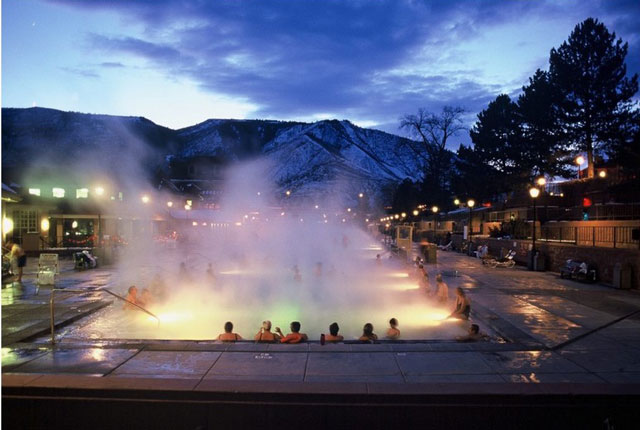About the Permitting Process for the Mine Expansion Proposal
Permits for the project must be approved by federal, state and local governments.
The lead permitting agency is the U.S. Bureau of Land Management (BLM), since the existing quarry and the proposed expansion is on public land managed by BLM.
If Rocky Mountain Industrials were to gain permit approval from BLM, it must also seek permits for mining reclamation, air quality, water quality and highway access from various agencies within Colorado state government. Permits would also be required from Garfield County and the City of Glenwood Springs.
The BLM permit review process
BLM has committed to reviewing the limestone mine expansion proposal through a formal Environmental Impact Statement (EIS) review process.
Because the EIS process is now limited under federal law to a one-year time period, BLM said it would first conduct five advance studies to provide essential information needed for the EIS process.
The first advance study is the Determination of Common Variety (DCV). It was started in 2019 and completed in January 2024.
The remaining four advance studies have yet to be initiated.
- Hydrologic and Groundwater Study
- Cave and Karst Study
- Ethnographic Study
- Standard Biological and Cultural Surveys
BLM’s timeline for starting the EIS process has been extended multiple times, and has not yet been started.
The process has been complicated by these factors:
• In August 2022, BLM issued a Notice of Noncompliance to RMI, citing four problem areas with its current quarry operations. Track the BLM noncompliance enforcement action here.
• In January 2023, a massive rockslide struck at the quarry. Other federal and state agencies initiated enforcement actions against the company. Learn about the rockslide here.
• In March 2023, BLM said it would require RMI to complete a major plan modification to bring the current quarry into compliance. Track the BLM noncompliance enforcement action here.
• In January 2024, BLM released the Determination of Common Variety (DCV) report. It determined that none of the limestone being mined at the existing quarry or proposed for future mining, with one possible exception, qualified for advantages under the Mining Law of 1872. Explore the DCV findings here.

Controversial drilling for Hydrologic and Groundwater Study is stalled
In September 2019, Rocky Mountain Industrials proposed drilling five water monitoring wells an estimated 125 to 250 feet down through the Leadville Limestone Formation, which is known to hold groundwater aquifers.
BLM conducted a public scoping process in October 2019, drawing 250 comments opposing the test drilling.
The Citizens’ Alliance filed extensive technical comments questioning the risk of test drilling to permanently damage the aquifers that feed the community’s hot springs resources. Read our commentary here.
BLM positioned itself to quickly approve the drilling request through a categorical exclusion.
Comments from the City of Glenwood Springs, Garfield County, the Glenwood Springs Chamber Resort Association, the Glenwood Hot Springs Pool, and Iron Mountain Hot Springs all called for further study under an Environmental Assessment before allowing the drilling to take place.
Then-Third District Congressman Scott Tipton urged BLM to “operate under an abundance of caution,” and formally requested BLM to first conduct an Environmental Assessment (EA).
On Dec. 12, 2019, BLM announced that it would conduct an EA. To date, the process has not begun.